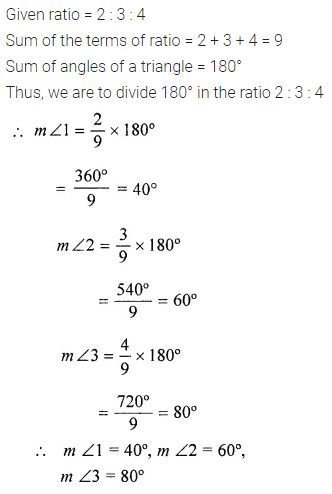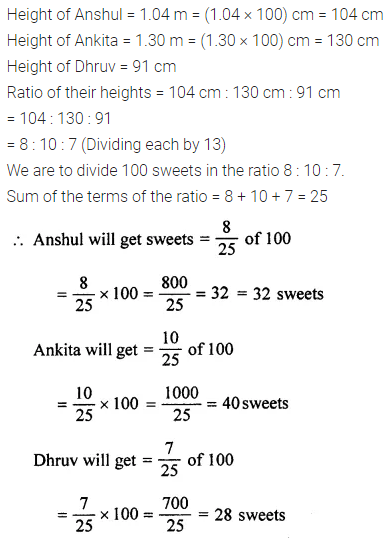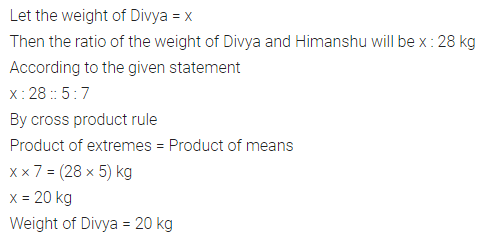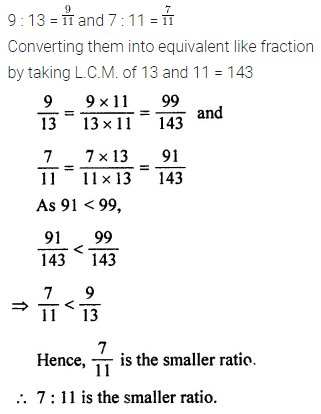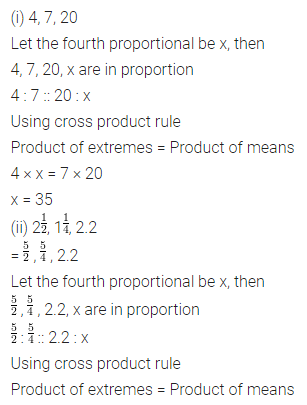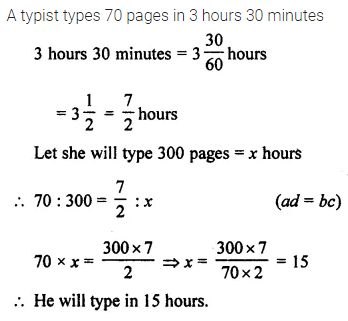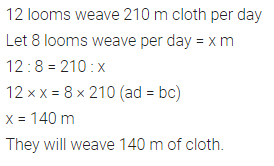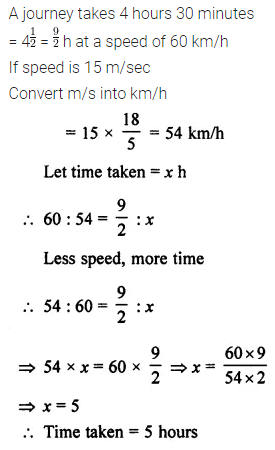Here we are providing Madam Rides the Bus Extra Questions and Answers Class 10 English First Flight, Extra Questions for Class 10 English was designed by subject expert teachers.
Madam Rides the Bus Extra Questions and Answers Class 10 English First Flight
Madam Rides the Bus Extra Questions and Answers Very Short Answer Type
Question 1.
Who was Valli?
Answer:
Valli was an eight year old girl.
Question 2.
What was her full name?
Answer:
Her full name was Valliammai.
Question 3.
What was her favourite pastime?
Answer:
Her favourite pastime was to watch the happening in the street outside standing in the front doorway of her house.
Question 4.
What did she use to watch from her door?
Answer:
She used to watch the happenings in the street outside.
Question 5.
Why did she spend her time all alone?
Answer:
She spent her time all alone because she had no playmates of her own age.
Question 6.
What was her overwhelming desire?
Answer:
Here overwhelming desire was to ride the bus.
Question 7.
Where was the bus going?
Answer:
The bus was going to the city.
Question 8.
What did the conductor say to Valli?
Answer:
The conductor asked Valli to hurry up and come quickly.
Question 9.
What did Valli reply to the conductor?
Answer:
Valli replied that she was the only passenger who had to go on.
Question 10.
Where was Valli going?
Answer:
Valli was going to the city.
Question 11.
Why did Valli stand up on her seat?
Answer:
She stood up on her seat because she found her view cut off by a canvas blind.
Question 12.
What did Valli see outside the window?
Answer:
She saw a canal, palm tree, grassland and mountains outside the window.
Question 13.
How was Valli feeling?
Answer:
Valli was feeling happy and enjoying her ride.
Question 14.
What did the elderly woman try to do?
Answer:
The elderly women tried to befriend Valli.
Question 15.
What did the woman ask her?
Answer:
The woman asked Valli if she was all alone.
Question 16.
Why did Valli become sad?
Answer:
Valli became sad because the cow was dead.
Question 17.
What did Valli find when she came back home?
Answer:
When Valli came back and entered her home, she found her mother awake and talking to one of her aunts.
Madam Rides the Bus Extra Questions and Answers Short Answer Type
Question 1.
What kind of a person was Valli?
Answer:
Valli was a curious, keen observer who had strong will power and determination. She was bold, brave and self-respective! She had immense self confidence and wanted to do everything on her own. she was innocent, highly sensitive, intelligent and was a very careful planner.
Question 2.
What was Valli’s favourite pastime?
Answer:
Valli’s favourite pastime was to stand in the front doorway of her house and watch the happenings of the street. ,
Question 3.
Why did Valli want to ride on the bus?
Answer:
Valli used to watch the bus on its hourly rounds through her street everyday. The sight of the bus filled with new passengers every time gave her unending joy. She was curious and wished to ride it once. So, she wanted to ride on the bus to enjoy it.
Question 4.
How did Valli plan for her first journey?
Answer:
Valli made careful and painstaking plans for her first journey. She saved every penny, cut down on her expenses and resisted all the temptations to save sixty paise for the fare. She gathered the information from the passengers and neighbours. She calculated the time required and chose afternoon, as her mother would take a nap during that time. All this shows that she was a meticulous planner.
Question 5.
What did Valli do after she got into the bus?
Answer:
She got into the bus and she looked at everything very thoroughly. When she looked outside she found her view cut off by the canvas blind that covered the lower part of her window. So she stood upon the seat and peered over the blind.
Question 6.
What did Valli see out of the window on her first journey?
Answer:
Valli saw the nature’s grandeur out of the bus window. She saw the. green bank of a canal with the palm trees and mountains in the background and the blue sky. On the other side, she saw a deep ditch and green fields. She saw other vehicles, a young cow running in front of the bus. She later saw it dead.
Question 7.
What did the Valli find when she entered her house after the ride from the bus?
Answer:
Valli entered her house after the ride from the bus. Her mother was awake and talking to one of her aunts. She was from the South Street and was a real chatterbox. She would never close her mouth once she started talking.
Question 8.
How did Valli arrange for her bus fare?
Answer:
Valli arranged for her bus fare meticulously. For her first journey outside the village, Valli needed sixty paise to the two way fare of the bus. She needed some knowledge and ample time. She saved the money herself, collected the information from the passengers and utilized the time of her mother’s nap for it.
Question 9.
What did Valli’s mother say about the things happening without her knowledge?
Answer:
Valli’s mother said that so many things happen amidst us and in the world outside. We cannot know everything. When we know about something we often cannot understand it completely.
Question 10.
What was Valli’s favourite pastime?
Answer:
Valli was a Tamil girl. She had no playmates. It was her favourite pastime to stand in the doorway of her house. Thus she was able to watch all that was going on there. In a way she had attained too many unusual experiences.
Question 11.
What was a source of unending joy for Valli? What was her strongest desire?
Answer:
Valli was deeply attracted towards the bus. She had the strongest desire to ride in it. It travelled between Her village and the nearest town at an interval of an hour. The sight of the bus and passengers had been the source of unending joy for her.
Question 12.
What did Valli find out about the bus journey? How did she find out these details?
Answer:
Valli used to look at the faces of the daily travellers of the bus. Very often she listened to the conversations held between her neighbours and the passengers. Sometimes she also asked questions from them.
Question 13.
What do you think Valli was planning to do?
Answer:
Valli was a clever girl. She was planning to travel in the bus. She was calculating the time needed for the trip. The trip of the town took forty five minutes. It came to her mind to take the afternoon bus of . one o’clock. She would return by two forty five.
Question 14.
Why does the conductor call Valli ‘madam’?
Answer:
The conductor was a jolly sort of fellow. He was much fond of joking. He had judged the temperament of this small child. It was only to please her, he called her Valli ‘madam’.
Question 15.
Why does Valli stand up on the seat? What does she see now?
Answer:
Valli stands up on her seat. She has a keen desire to see everything with her own eyes. So she starts to look outside. She sees that the bus is going along the bank of a canal. The road is very narrow. Beyond it were the palm trees, mountains and fields etc.
Question 16.
What does Valli tell the elderly man when he calls her a child?
Answer:
Valli was a very smart girl. She had a superiority complex in her mind. She did not want herself to be called a child. On hearing herself as a child, she answered that there was no child. She had paid thirty paise like everyone else.
Question 17.
Why didn’t Valli want to make friends with the elderly woman?
Answer:
Valli was a girl of superior nature. She greatly disliked the elderly woman for her big holes in the ears. ‘ The earrings was very ugly. She was chewing the betel-nut. Its juice could fall at any moment. She was putting irrelevant questions to Valli.
Question 18.
How did Valli save up money for her first journey? Was it easy for her?
Answer:
Valli was a very wise girl. She saved her every penny to have a ride in the bus. She resisted every temptation to buy balloons, toys, peppermints and so on. She even controlled herself to have a ride on the merry-go-round at the village fair. It was rather troublesome for her.
Question 19.
What did Valli see on her way that made her laugh?
Answer:
By chance there came a young cow right in front of the running bus. The driver slowed it down. He sounded the horn very loudly time and again. But the more he honked, the more the cow was frightened and galloped faster. This made Valli laugh.
Question 20.
Why didn’t she get off the bus at the bus station?
Answer:
When the bus terminated at the bus station, Valli did not get off. The conductor asked her to get off. She replied that she would turn back by the same bus. She even refused to see the sights and the cold drink. She was afraid to move alone.
Question 21.
Why didn’t Valli want to go to the stall and have a drink? What does this tell you about her?
Answer:
Valli did not want to go to the stall and have a drink because she was afraid. She was alone. She had money only for the ticket. This tells that Valli was a very wise girl. She could control her feelings.
Madam Rides the Bus Extra Questions and Answers Long Answer Type
Question 1.
“On and on went her thoughts as she calculated and recalculated, planned and replanned”. In which manner did Valli calculate, plan and prepare herself for the ride on the bus?
Answer:
Valli had made careful, painstaking and elaborate plans for her visit to the city. She had saved every coin she could. She overcame the temptation to buy peppermints, toys, balloons and the lijce. Finally she had saved a total of sixty paise. She suppressed her strong desire to ride on the merry-go-round at the village fair. Her next problem was how to slip out of the house without her mother’s knowledge. But she managed this without much difficulty as everyday after lunch her mother would take a nap from about , one to four or so. She would visit the city during this period.
Question 2.
‘Never mind ‘she said, “I can get on by myself.” “You do not have to help me”, said Valli to the conductor. She shows extraordinary courage in making the bus journey all alone. Taking inspiration from Valli’s character, write how ability and courage to take risk are essential to fulfill one’s dreams.
Answer:
It is absolutely true that ability and courage to take risk are essential to fulfill one’s dream. Valli was an eight year old girl. She never made a journey to outside. She even never rode a bus. Her parents did not allow her to go outside her house. But she mustered up the courage and rode on a bus to make a bus journey. She enjoyed the journey and understand the reality about the outside world. She was a young girl but she made the journey without any difficulty because she had courage to take risk.
In other words, we can say that the thing or task that seems to be very hard is actually not so tough. We can do it if we have the ability and courage to take risk. If we do not dare to take risk, we lose opportunities to get better.
Question 3.
Whenever we want to achieve something, difficulties always come in our way. What did Valli have to do to go and ride in a bus?
OR
Once we decide to achieve something, so many difficulties come in our ways with focused attention we can make that achievement. How did valli succeed in fulfilling her desire of riding a bus?
Answer:
It is true that whenever we want something, difficulties do come in our way. But one must be ambitious in life. Achieving goals require perseverance. Valli wanted to ride the bus, however, she did not have the money to do so. The challenge in front of her was to arrange for the required amount of money. Valli had carefully saved whatever stray coins came her way, resisting every temptation to buy peppermints, toys, balloons and the like. Finally she had collected thirty paise. Moreover, she watched the bus, its routine and schedule very carefully. She also listened to people’s conversation about their journey. But due to her efforts, finally she accomplished her desire.
Question 4.
Compare Valli’s journey to the city with her journey back home. Why was there a change in her mood?
OR
“Valli’s journey to the city is also her introduction into the mystery of life and death. Elaborate.
OR
Why did Valli not enjoy her bus ride back home?
Answer:
Valli’s journey to the city is also her introduction into the mystery of life and death. While on her way to the city Valli saw a cow running very fast in the middle of the road, right in front of the bus. Valli enjoyed the scene. She kept on laughing initially and her eyes were filled with tears. She saw life in the form of a small cow. This is what life gives us—happiness, enjoyment. Valli enjoyed the scene.
On her way back home she saw a dead cow lying on the road. It was hit by some speeding vehicle. She recognised it. It was the same cow that filled her life with fun and joy only a few minutes before. She was overcome with the feelings of sadness. She realised how death can change the things.
“What had been a lovable, beautiful creature just a little while ago had now suddenly lost its charm and its life and looked so horrible, so frightening.” The memory of the dead cow haunted Valli and she did not enjoy her remaining journey
Question 5.
What was Valli’s deepest desire? Find the words and phrases in the story that tell you this.
Answer:
It was the deepest desire of Valli to enjoy a bus ride. There ran a bus between her village and the nearest town. She was able to fulfil her desire. The following words and phrases tell us about this.
The fascinating things, the sight of the bus, a source of un-ending joy. A tiny wish crept into her head overwhelming desire, listening carefully discreet questions and stop the bus, etc.
Question 6.
How did Valli plan her bus ride? What did she find out about the bus and how did she save the fare?
Answer:
Valli was a Tamil girl of eight years. She had no playmates. It was her favourite pastime to stand on the front doorway of her house. She watched what was happening in the street outside. She had the keenest desire to have a bus ride. She listened to the conversation between her neighbours and people who were regular bus commuters. She even questioned them. She had got ample knowledge about the bus, bus fare and duration of time. There ran a bus between her village and the nearest town. The town was six miles from her village.
The fare was thirty paise for one way. So she had to collect sixty-paise for the both side journey. This she had heard from a well-dressed person. The trip to the town took forty five minutes. She would board at one O’clock afternoon bus and reach the town at one forty-five . She would be back by about two forty-five. She resisted all her temptations of buying balloons, toys and saved money. She collected all the stray coins that came her way. At the village fair, she avoided the swing and the merry-go-round. Thus she collected her requisite money.
Question 7.
Why does the conductor refer to Valli as ‘madam’?
Answer:
The conductor is a man of worldly wise nature. He has evaluated that the girl has innocence and ignorance in her behaviour. In order to enjoy and have fun and not to make her unhappy, he calls Valli as ‘Madam’ though she is simply a girl of eight years.
Question 8.
Find the lines in the text which tell you that Valli was enjoying her ride on the bus.
Answer:
The following lines in the text tell us that Valli was enjoying her ride on the bus.
- While the bus was moving on a narrow road along the bank of a canal, she saw distant mountains, fields, sky and so on. She went on seeing as far as her eyes could see. She uttered, “Oh, it was all so wonderful.
- The bus rolled on cutting across a bare landscape and was about to gobble up another vehicle. The bus left everything safely. Valli suddenly clapped her hands with glee.
- There came a cow, it ran faster at the horn and came right before the bus. This scene made her laugh until there were tears in her eyes. The conductor said, ‘Hey, lady, haven’t you laughed enough? Better save some for tomorrow’.
- The bus passed the shopping street. There were displays of clothes and other merchandise! Such big crowds! Struck dumb with wonder, Valli gaped at everything.
Question 9.
Why does Valli refuse to look out of the window on her way back?
Answer:
While on her way back, Valli saw a young cow lying dead by the roadside. It looked horrible and frightening. There was a fixed stare in her lifeless eyes with blood all over. Its memory haunted her very much. She lost all her enthusiasm and excitement. She no longer wanted to look out of the window.
Question 10.
What does Valli mean when she says, “I was just agreeing with what you said about things happening without our knowledge?”
Answer:
Valli entered her house after her bus journey. She found her mother conversing with one of her aunts. She overhears their discussion on the things happening in their midst as well as in the world outside. They could not know about everything. Even some of them could not be understood by them. At this juncture, Valli too opined like a wise person and told that many things were happening without their knowledge.
Question 11.
The author describes the things that Valli sees from an eight years old’s point of view. Can you find evidence from the text for this statement?
Answer:
The author has rightly described many things from an eight years old Valli’s point of view.
Some of the sentences can be mentioned as under:
- On listening to one of her friends describing the sights, Valli would shout “Proud! Proud!
- From the regular bus commuters, she would ask a few discreet questions here and there.
- And here’s my money.
- I can get on by myself. You don‘t have to help me.
- There’s nobody here who’s a child.
- Ugh! Who could be sociable with such a person.
- “No, no one will be looking for me,”she said.
Madam Rides the Bus Extra Questions and Answers Reference to Context
Read the following passages and answer the questions that follow:
Question 1.
There was a girl named Valliammai who was called Valli for short. She was eight years old and very curious about things. Her favourite pastime was standing in the front doorway of her house, watching what was happening in the street outside. There were no playmates of her own age on her street, and this was about all she had to do.
But for Valli, standing at the front door was every bit as enjoyable as any of the elaborate games other children played. Watching the street gave her many new unusual experiences. (Page 117)
(i) What was the short name of the girl?
(ii) What was Valli’s favourite pastime?
(iii) Why did she spend her time all alone?
(iv) Pick out the word from the passage that means same as ‘uncommon’.
Answer:
(i) Valli was the short name of the girl.
(ii) Valli’s favourite pastime was standing in front doorway of her house.
(iii) She spent her time all alone because she had no playmates of her own age in her street.
(iv) ‘unusual’.
Question 2.
The most fascinating thing of all was the bus that travelled between her village and the nearest town. It passed through her street each hour, once going to the town and once coming back. The sight of the bus, filled each time with a new set of passengers, was a source of unending joy for Valli. Day after day she watched the bus, and gradually a tiny wish crept into her head and grew there: she wanted to ride on that bus, even if just once. This wish became stronger and stronger, until it was an overwhelming desire. Valli would stare wistfully at the people who got on or off the bus when it stopped at the street comer. Their faces would kindle in her longings, dreams, and hopes. If one of her friends happened to ride the bus and tried to describe the sights of the town to her, Valli would be too jealous to listen and would shout, in English: “Proud! Proud!”
(i) What did Valli watch daily?
(ii) What was her overwhelming desire?
(iii) Was Valli’s wish to ride the bus stronger or weaker?
(iv) Pick out the word from the passage that means same as—longingly.
Answer:
(i) Valli watched the bus that travelled between her village and the nearest town.
(ii) Valli’s overwhelming desire was to ride the bus.
(iii) Valli’s wish to ride the bus was too strong.
(iv) ‘wistfully’.
Question 3.
Over many days and months Valli listened carefully to conversations between her neighbours and people who regularly used the bus, and she also asked a few discreet questions here and there. This way she picked up various small details about the bus journey. The town was six miles from her village. The fare was thirty paise one way—“which is almost nothing at all,” “she heard one well-dressed man say, but to Valli, who scarcely saw that much money from onfc month to the next, it seemed a fortune. The trip to the town took forty-five minutes. On reaching town, if she stayed in her seat and paid another thirty paise, she could return home on the same bus. This meant that she could take the one-o’ clock afternoon bus, reach the town at one forty-five, and be back home by about two forty-five… On and on went her thoughts as she calculated and recalculated, planned and replanned.
(i) How did Valli know details about this bus journey?
(ii) What was the distance of the town from Valli’s village?
(iii) How did she pay for her journey?
(iv) Pick out the words from the passage that means same as—‘careful questions’.
Answer:
(i) Valli knew details about the bus journey from the conversations between her neighbours and commuters.
(ii) The distance of the town from Valli’s village was six miles.
(iii) She paid thirty paise for her bus journey.
(iv) ‘discreet questions’.
Question 4.
Well, one fine spring day the afternoon bus was just on the point of leaving the village and turning into the main highway when a small voice was heard shouting: “Stop the bus! Stop the bus!” And a tiny hand was raised commandingly.The bus slowed down to a crawl, and the conductor, sticking his head out the door, said “Hurry then! Tell whoever it is to come quickly.”
“It’s me,” shouted Valli. “I’m the one who has to get on.”
(i) Where was the bus going?
(ii) Who stopped the bus?
(iii) What did the conductor say to Valli?
(iv) Pick out the word from the passage that means same as “small”.
Answer:
(i) The bus was leaving the village and going to the city.
(ii) Valli stopped the bus.
(iii) The conductor asked Valli to hurry up and come quickly.
(iv) tiny.
Question 5.
It was the slack time of day, and there were only six or seven passengers on the bus. They were all looking at Valli and laughing with the conductor. Valli was overcome with shyness. Avoiding everyone’s eyes, she walked quickly to an empty seat and sat down, “May we start now, madam?” The conductor asked, smiling. Then he blew his whistle twice, and the bus moved forward with a roar. It was a new bus, its outside painted a gleaming white with some green stripes along the sides. Inside, the overhead bars shone like silver. Directly in front of Valli, above the windshield, there was a beautiful clock. The seats were soft and luxurious. (Pages 119-120)
(i) What were the six or seven passengers doing?
(ii) Why did she avoid everyone’s eyes?
(iii) How was the outside of the bus painted?
(iv) Pick out the word from the passage that means the same as—A time when there is no much work.
Answer:
(i) The six or seven passengers were looking at Valli and laughing with the conductor.
(ii) Valli avoided everyone’s eyes because she was feeling shy.
(iii) The outside of the bus was printed white with some green stripes along the sides.
(iv) ‘Slack Time’.
Question 6.
Valli devoured everything with her eyes. But when she started to look outside, she found her view cut off by a canvas blind that covered the lower part of her window. So she stood up on the seat and peered over the blind.The bus was now going along the bank of a canal. The road was very narrow. On one side there was the canal and, beyond it, palm trees, grassland, distant mountains, and the blue, blue sky. On the other side was a deep ditch and then acres and acres of green fields—green, green, green, as far as the eye could see. (Page 120)
(i) Why did Valli stand up on her seat?
(ii) Where was she going to?
(iii) How was Valli feeling?
(iv) Pick out the word from the passage that means the same as ‘looked through’.
Answer:
(i) Valli stood up on her seat because she wanted to look outside.
(ii) She was going to the city.
(iii) Valli was feeling happy and enjoying her ride.
(iv) ‘peered’.
Question 7.
Suddenly she was startled by a voice. “Listen child,” said the voice, “you shouldn’t stand like that. Sit down.”
Sitting down, she looked to see who had spoken. It was an elderly man who had honestly been concerned for her, but she was annoyed by his attention.
“There’s nobody here who’s a child,” she said haughtily. “I’ve paid my thirty paise like everyone else.” The conductor chimed in. “Oh, sir, but this is a very grown-up madam. Do you think a mere girl could pay her own fare and travel to the city all alone?” (Pages 120-121)
(i) What did somebody say to Valli?
(ii) What did the elderly man advise the child?
(iii) What did the conductor chime in about Valli?
(iv) Pick out the word from the passage that means the same as ‘proudly’.
Answer:
(i) Somebody said to Valli that she should not stand like that and asked her to sit down.
(ii) The elderly man advised the child to sit down.
(iii) The conductor chimed in about the girl calling her as a grown-up woman.
(iv) ‘haughtily.
Question 8.
An elderly woman came and sat beside her. “Are you all alone, dear?” She asked Valli as the bus started again. Valli found the woman absolutely repulsive—such big holes she had in her ear lobes, and such ugly earrings in them! And she could smell the betel nut the woman was chewing and see the betel juice that was threatening to spill over her lips at any moment. Ugh!—who could be sociable with such a person?
(i) What did the elderly woman try do?
(ii) Why did Valli find the woman repulsive?
(iii) What did the woman ask her? .
(iv) Pick out the word from the passage that means same as—‘causing dislike’.
Answer:
(i) The elderly woman tried to befriend Valli.
(ii) Valli found the woman absolutely repulsive as she had big holes in her ear lobes and ugly earrings in them. She was also chewing betel nut.
(iii) The woman asked Valli if she was all alone.
(iv) ‘repulsive’.
Question 9.
Her first journey—what careful, painstaking, elaborate plans she had to make for it! She had thriftily saved whatever stray coins came her way, resisting every temptation to buy peppermints, toys, balloons, and the like, and finally she had saved a total of sixty paise. How difficult it had been, particularly that ’ day at the village fair, but she had resolutely stifled a strong desire to ride the merry -go-round, even though she had the money.
After she had enough money saved, her next problem was how to slip out of the house without her mother’s knowledge. (Page 122)
(i) What did Valli had to do for her first journey?
(ii) What temptations did she have to resist?
(iii) What kind of desire did she have to curb at the village fare?
(iv) Pick out the word from the passage that means the same as—‘spend money carefully’.
Answer:
(i) Valli had to make careful, painstaking and elaborate plans for her first journey.
(ii) Valli had to resist the temptation to buy peppermints, toys, balloons, etc.
(iii) Valli had to curb a strong desire to ride the merry-go-round at the village fare.
(iv) ‘thriftily’.

